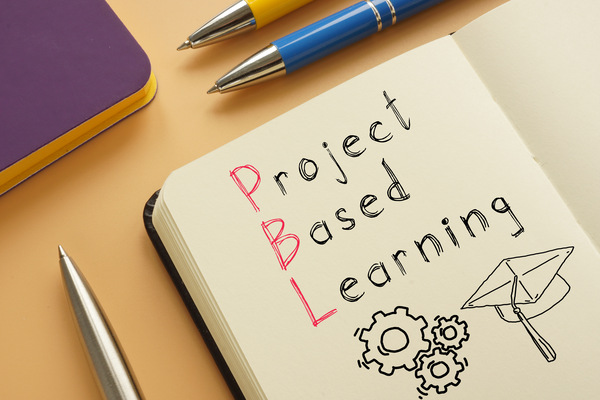Transform Your Teen’s Study Sessions – Top Tips for High School Homework Success
As your teenager moves through high school, their homework can become more challenging and time-consuming, affecting not just their academic success but also their confidence and stress levels. Establishing effective study habits early on is crucial for helping them manage this increased workload.
All the while, maintaining a healthy balance between school, extracurricular activities, and personal time. Parents play a key role in supporting their children’s educational endeavors, especially during these formative high school years.
By providing the right environment and tools for study, encouraging a consistent study routine, and showing interest in their academic progress, you can help your child develop a positive attitude toward homework. Yes, really.
The Role of Routine
Establishing a study schedule is a cornerstone of academic success. For high school students, balancing classes, homework, extracurricular activities, and personal time can be overwhelming without a clear routine. A well-thought-out study routine not only allocates time for completing homework but also ensures there’s enough room for rest, hobbies, and socializing. This balance is crucial for maintaining a healthy outlook towards school and life.
Encouraging your teenager to stick to a schedule teaches them time management skills and helps reduce procrastination. It’s beneficial to involve them in the planning process, allowing them to have a say in their study times and breaks. This empowerment leads to greater adherence to the schedule and fosters a sense of responsibility. Remember, the goal is to create a routine that feels natural and supports your child’s learning habits and well-being.
Customized Learning Strategies for Every Subject
Not all subjects are created equal, and neither should the approach to studying them. High school presents a wide array of subjects, each with its unique challenges and requirements. Students need to recognize these differences and adapt their study techniques accordingly. For instance, subjects like mathematics might benefit from regular practice and problem-solving, while history may require a focus on comprehension and memorization of key facts and dates.
Encouraging your child to identify their strengths and weaknesses in each subject area allows them to tailor their study strategies for more effective learning. This might involve visual aids for science, flashcards for language vocabulary, or timelines for history. Such customized approaches not only make study sessions more productive but also more engaging for the student. As a parent, offering guidance and resources to explore different study techniques can be incredibly supportive.
A Guide to Resources and Tools
The challenge of high school homework can sometimes extend beyond what the classroom provides, making external support and resources invaluable. Supporting your child as they complete high school homework means more than just reminding them about due dates; it’s about providing them with the tools and strategies they need to succeed. This support can come in many forms, from online study resources that offer practice problems and study guides to educational apps that help with time management and organization.
Creating a supportive home environment is also part of this equation. This means having a dedicated study space where your child can focus without distractions, as well as being available to discuss concepts or review materials together. While it’s essential to encourage independence, knowing when and how to step in with guidance can make a significant difference in your child’s academic confidence and performance. By actively supporting your child’s high school homework, you’re helping them with their current studies and setting them up with the skills to tackle future challenges independently.
Strategies for Difficult Homework Assignments
Facing a taxing homework assignment can sometimes lead to frustration or simply avoidance. The first step in overcoming these challenges is recognizing when your child needs extra help. Encourage open communication about schoolwork and reassure them that seeking help is a strength, not a weakness. Together, you can break down the assignment into manageable parts, setting small, achievable goals to maintain motivation.
Consider alternative resources such as online tutorials, study groups, or additional materials from the teacher to provide different perspectives on the topic. Sometimes, a fresh approach can make all the difference in understanding complex concepts. Remember, the goal is to build resilience and problem-solving skills, teaching your child to navigate academic hurdles with confidence and perseverance.
Building a Support System
Parental involvement in homework is key to supporting your child’s educational success. It shows you value their learning and are invested in their progress. Start by establishing a regular time and place for homework, free from dis0tractions, where you’re available to answer questions or offer guidance. This consistent routine not only helps with time management but also makes it easier for you to monitor their workload and progress.
Being involved doesn’t mean doing the work for them but rather guiding them to find the answers on their own. Encourage your child to explain their thinking and reasoning as they tackle assignments. This not only helps solidify their understanding but also allows you to identify areas where they might need further clarification or support. Your engagement can make homework feel less like a chore and more like a collaborative learning experience.
Balancing Study Time with Relaxation
Integrating breaks into study sessions is crucial for maintaining focus and preventing burnout. Encourage your child to take short, structured breaks to recharge, whether it’s a quick walk, some stretching, or a snack. These moments of rest can significantly improve concentration and productivity, making study time more effective.
Help your child understand that breaks are a part of effective studying, not a diversion from it. Promote activities during breaks that genuinely relax and rejuvenate, steering clear of screens or other distractions that might lead to procrastination. Structured downtime is an essential component of a balanced study routine, enabling your child to return to their work refreshed and ready to learn.
Supporting your child through their high school journey requires patience, understanding, and a collaborative effort. By establishing a conducive study environment, customizing learning strategies, and encouraging effective time management, you can significantly impact their academic performance and overall well-being. Your involvement and support play a critical role in developing their confidence, resilience, and independence.







